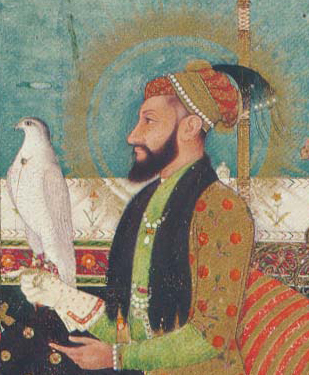History of India
- Introduction to Ancient India
- The Mauryan Empire
- Post-Mauryan India and the Golden Age
- Early Medieval India
- The Delhi Sultanate
- The Mughal Empire - Part I
- The Mughal Empire - Part II
- The Advent of European Powers
- The British Raj - Part I
- The British Raj - Part II
- Independence & Partition
The Mughal Empire - Part II
The Era of Aurangzeb

Mughal emperor from 1658 to 1707.
Aurangzeb, the sixth Mughal Emperor, ruled over most of the Indian subcontinent from 1658 to 1707. His reign, which lasted nearly 50 years, was marked by a series of military campaigns, religious controversies, and administrative reforms.
The Early Life and Rise of Aurangzeb
Born in 1618, Aurangzeb was the third son of Emperor Shah Jahan and Mumtaz Mahal. He was a brilliant military strategist and a deeply religious man. His rise to power began with his appointment as the viceroy of the Deccan. In 1658, he imprisoned his father and defeated his brothers in a brutal war of succession, declaring himself the emperor.
Aurangzeb's Religious Policies and Their Impact
Aurangzeb is often remembered for his strict adherence to Islam and his attempts to implement Islamic law across his empire. He reversed the policy of religious tolerance followed by his predecessors, leading to the persecution of non-Muslims. He imposed the jizya, a tax on non-Muslims, and banned music and other forms of entertainment in his court. These policies led to widespread discontent and rebellion among his subjects, particularly among the Hindu and Sikh populations.
Major Battles and Conquests Under Aurangzeb
Aurangzeb's reign was marked by constant warfare. He expanded the Mughal Empire to its greatest territorial extent, incorporating the southern kingdoms of Bijapur and Golconda. However, his relentless military campaigns drained the empire's resources and led to its eventual decline.
One of the most significant battles of Aurangzeb's reign was the Mughal-Maratha Wars. The Marathas, under the leadership of Shivaji, resisted Aurangzeb's rule and eventually established their own kingdom in the Deccan.
The Administrative Reforms of Aurangzeb
Despite the controversies surrounding his rule, Aurangzeb was a capable administrator. He introduced several reforms aimed at improving the efficiency of the administration. He abolished several taxes, streamlined the revenue collection system, and implemented strict laws to curb corruption. He also compiled the Fatawa-e-Alamgiri, a comprehensive code of Islamic law, which served as the legal framework for the empire.
In conclusion, Aurangzeb's reign was a period of significant change for the Mughal Empire. His religious policies and military campaigns had far-reaching consequences, setting the stage for the decline of the Mughal Empire and the rise of regional powers. Despite his controversial legacy, his administrative reforms and contributions to Islamic law cannot be overlooked.